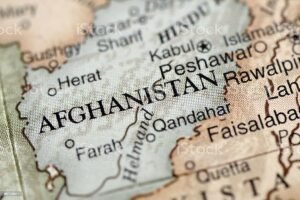
By Kauser News Agency, USA
As the countdown to a pivotal decision narrows to just two days, the world is watching closely to see what direction former President Donald Trump might advocate for the U.S. approach in Afghanistan. With the situation on the ground changing rapidly, and Trump’s recent remarks indicating a possible shift in strategy, questions linger over the potential for renewed American engagement in the region.
The Doha Deal’s Uncertain Fate
The Doha Agreement, signed in February 2020, initially sought to end nearly two decades of conflict between the U.S. and the Taliban. However, Trump has recently hinted that the deal is effectively “canceled.” The former president has raised concerns about the Taliban’s governance and their ability to maintain stability, particularly given recent security breaches in northern provinces and Kabul, the capital. While Trump has not detailed a precise plan, his statements suggest he may be considering alternatives to a full withdrawal.
Potential Support for External Groups?
Another notable aspect of Trump’s recent comments is his indication of possible support for external Afghan groups that oppose the Taliban. Two prominent groups with established presences in Afghanistan are the Afghan Liberation Movement (ALM) and the Afghan United Front (AUF). While both have historically opposed Taliban rule, their actions and objectives are varied, and U.S. support for such groups could add complexity to an already tense situation. Trump’s backing of these groups, if pursued, could open new fronts in the Afghan conflict and affect the delicate balance of power.
The Role of Bagram and Cobra Bases
Amid growing geopolitical tensions, especially involving China, Russia, and the U.S., there is speculation that U.S. forces might reoccupy strategic bases such as Bagram and Cobra. These bases, once critical to U.S. operations in Afghanistan, could serve as valuable assets in a region where global powers are increasingly vying for influence. With China expanding its Belt and Road Initiative in neighboring countries and Russia exerting influence across Central Asia, a U.S. return to these bases could mark a new chapter in the Afghan theater of the “Great Game.”
Afghanistan’s Fragile Security Landscape
The Taliban’s position remains precarious as they contend with opposition not only from various groups but also from regional instability in the north and recurrent attacks in Kabul. This fragile security situation could weaken the Taliban’s grip, particularly in provinces where local opposition remains strong. The challenges they face in maintaining security and governance may offer an opening for other Afghan factions to gain influence, especially if backed by external powers.
Looking Ahead
As the Trump administration’s approach to Afghanistan continues to evolve, the world is left wondering how his decisions will shape the region’s future. A potential return to military presence, coupled with support for anti-Taliban factions, could signal a reengagement in the region. However, the final decision—and its implications for both Afghanistan and the wider geopolitical landscape—remains to be seen.
The coming days and weeks will reveal whether the U.S. will once again invest in Afghan stability or pivot toward a different approach altogether.



